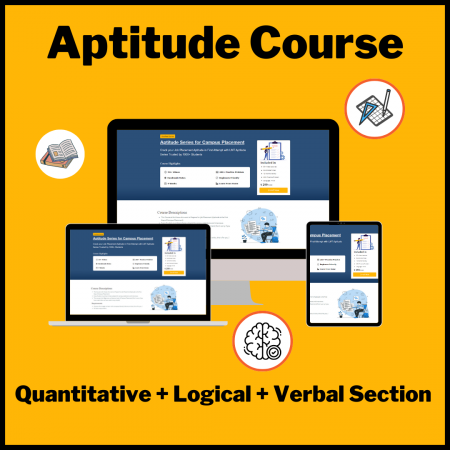Parallel Computing and Distributed System Notes
₹49.00
-
Parallel computing Notes
-
Pipelining Notes
-
Synchronous Parallel Processing Notes
-
Distributed System Notes
-
Load Balancing Notes
Parallel Computing and Distributed System [PDS, PDC]
(Parallel Computing and Distributed System) PDS is semester 8 subject of final year of computer engineering at Mumbai University. Prerequisites for studying this subject are Java Programming, Operating Systems, Computer Networks.
Distributed computing is a field of computer science that studies distributed systems. A distributed system is a system whose components are located on different networked computers, which communicate and coordinate their actions by passing messages to one another from any system. The components interact with one another in order to achieve a common goal. Three significant characteristics of distributed systems are: concurrency of components, lack of a global clock, and independent failure of components. Examples of distributed systems vary from SOA-based systems to massively multiplayer online games to peer-to-peer applications. A computer program that runs within a distributed system is called a distributed program (and distributed programming is the process of writing such programs).There are many different types of implementations for the message passing mechanism, including pure HTTP, RPC-like connectors and message queues. Distributed computing also refers to the use of distributed systems to solve computational problems. In distributed computing, a problem is divided into many tasks, each of which is solved by one or more computers, which communicate with each other via message passing.
Objectives of the subject Parallel Computing and Distributed System is to provide students with contemporary knowledge in parallel and distributed system. To equip students with skills to analyze and design parallel and distributed applications. To provide master skills to measure the performance of parallel and distributed algorithms Outcomes of the subject Parallel Computing and Distributed System Learner will be able to Apply the principles and concept in analyzing and designing the parallel and distributed system. Reason about ways to parallelize problems. Gain an appreciation on the challenges and opportunities faced by parallel and distributed systems. Understand the middleware technologies that support distributed applications such as RPC, RMI and object based middleware. Improve the performance and reliability of distributed and parallel programs.
Chapter Introduction includes the following subtopics Parallel Computing, Parallel Architecture, Architectural Classification Scheme, Performance of Parallel Computers, Performance Metrics for Processors, Parallel Programming Models, Parallel Algorithms.
Chapter Pipeline Processing includes the following subtopics Introduction, Pipeline Performance, Arithmetic Pipelines, Pipelined Instruction Processing, Pipeline Stage Design, Hazards, Dynamic Instruction Scheduling,
Chapter Synchronous Parallel Processing includes the following subtopics Introduction, Example-SIMD Architecture and Programming Principles, SIMD Parallel Algorithms, Data Mapping and memory in array processors, Case studies of SIMD parallel Processors.
Chapter Introduction to Distributed Systems includes the following subtopics Definition, Issues, Goals, Types of distributed systems, Distributed System Models, Hardware concepts, Software Concept, Models of Middleware, Services offered by middleware, Client Server model.
Chapter Communication includes the following subtopics Layered Protocols, Remote Procedure Call, Remote Object Invocation, Message Oriented Communication, Stream Oriented Communication.
Chapter Resource and Process Management includes the following subtopics Desirable Features of global Scheduling algorithm, Task assignment approach, Load balancing approach, load sharing approach, Introduction to process management, process migration, Threads, Virtualization, Clients, Servers, Code Migration.
Chapter Synchronization Clock Synchronization, Logical Clocks, Election Algorithms, Mutual Exclusion, Distributed Mutual Exclusion-Classification of mutual Exclusion Algorithm, Requirements of Mutual Exclusion Algorithms, Performance measure, Non Token based Algorithms: Lamport Algorithm, Ricart–Agrawala’s Algorithm, Maekawa’s Algorithm. Token Based Algorithms: Suzuki-Kasami’s Broardcast Algorithms, Singhal’s Heurastic Algorithm, Raymond’s Tree based Algorithm, Comparative Performance Analysis.
Chapter Consistency and Replication includes the following subtopics Introduction, Data-Centric and Client-Centric Consistency Models, Replica Management. Distributed File Systems includes the following subtopics Introduction, good features of DFS, File models, File Accessing models, File-Caching Schemes, File Replication, Network File System(NFS), Andrew File System(AFS), Hadoop Distributed File System and Map Reduce.
Suggested Text Books for the subject Parallel Computing and Distributed System are as follows M.R. Bhujade, “Parallel Computing”, 2nd edition, New Age International Publishers 2009. Andrew S. Tanenbaum and Maarten Van Steen, “Distributed Systems: Principles and Paradigms, 2nd edition, Pearson Education, Inc., 2007. Suggested Reference Books for the subject Parallel Computing and Distributed System are as follows George Coulouris, Jean Dollimore, Tim Kindberg, “Distributed Systems: Concepts and Design” (4th Edition), Addison Wesley/Pearson Education. Pradeep K Sinha, “Distributed Operating Systems : Concepts and design”, IEEE computer society press.
Prepare For Your Placements: https://lastmomenttuitions.com/courses/placement-preparation/
![]()
/ Youtube Channel: https://www.youtube.com/channel/UCGFNZxMqKLsqWERX_N2f08Q
Follow For Latest Updates, Study Tips & More Content!
Course Features
- Lectures 5
- Quizzes 0
- Duration 50 hours
- Skill level All levels
- Language English
- Students 15
- Certificate No
- Assessments Yes


![SEBI GRADE A – IT 2025 SEBI GRADE A 2025 – IT [ Phase 1 + Phase 2 ]](https://lastmomenttuitions.com/wp-content/uploads/2025/12/SEBI-GRADE-A-IT-2025-450x450.png)
